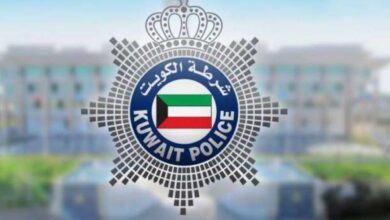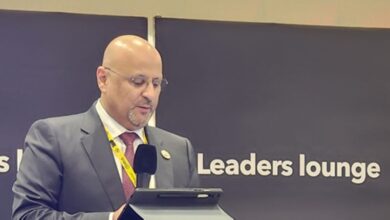Reimagining Economic Diversification Through Environmental Leadership


By Sarah Al Sabah
Special to The Times Kuwait
Kuwait stands at a defining moment in its economic journey. As global momentum toward sustainability accelerates, the question is not whether Kuwait should diversify its economy. The question is how? The answer lies in aligning Kuwait’s diversification ambitions under Vision 2035 with a bold new engine: environmental leadership.

Across the Gulf, regional peers have demonstrated that investing in sustainability is not just good for the planet. It is smart economics. The United Arab Emirates’ Green Economy Strategy and Saudi Arabia’s NEOM project showcase how integrating clean energy, smart cities, and sustainable industries can reposition a nation globally. Kuwait must now act decisively, linking economic growth with environmental innovation to ensure long-term resilience, social well-being, and prosperity.
Infrastructure for a Sustainable Future: Vision 2035 places sustainable infrastructure at the heart of Kuwait’s transformation. Investing in green, future-ready infrastructure is not merely about compliance: it is about competitiveness and community well-being.

Renewable energy plants, eco-smart cities, water recycling systems, and low-emission transport networks are more than technical achievements. They are foundations for healthier, safer, and more vibrant societies. Reducing air pollution, improving urban livability, and expanding access to sustainable public spaces enhance both environmental health and human health, leading to higher life expectancy, greater productivity, and stronger societal cohesion.
Kuwait’s Shagaya Renewable Energy Park is a promising start. Scaling these efforts will not only build economic resilience but also dramatically improve quality of life for current and future generations.
Governance: Strong governance is the backbone of successful economic and social transformation. Kuwait must embed sustainability into public decision-making frameworks to ensure accountability, transparency, and inclusive growth.
Clear environmental regulations, AI-driven monitoring systems, and Environmental, Social and Governance (ESG) mandates for public projects will drive responsible business practices and sustainable investment. But governance is also about trust: when citizens see real progress on air quality, green spaces, and environmental stewardship, it fosters pride, engagement, and national unity.
Smart governance connects national ambitions to everyday experiences. Ensuring that Vision 2035 is not just a policy agenda, but a lived reality for all Kuwaitis.
Human Capital: Kuwait’s most valuable resource is its people. The future lies in Generation Z (those born between 1997–2012) the first true digital natives, who will carry Vision 2035 into reality.
Approximately 25 percent of Kuwait’s population is under the age of 25, offering a powerful demographic dividend if properly harnessed. Understanding Gen Z’s expectations, values, and behaviors is essential to human capital development and future workforce strategies.
Gen Z demands purpose-driven workplaces, social responsibility from employers, and career pathways that align with sustainability, technology, and innovation. Their influence is reshaping the landscape of economic and social opportunity:

Human Capital Development: Their career priorities require flexible learning, digital literacy, and leadership programs rooted in real-world environmental and social challenges.
Sustainable Economy Growth: Their spending patterns favor ethical consumption and green innovation, signaling emerging markets for Kuwait’s diversification efforts.
Financial Sustainability: Their adoption of digital payments and fintech accelerates Kuwait’s financial modernization, aligning with Vision 2035’s digitalization pillar.
Moreover, empowering Gen Z will not only prepare a future-ready workforce but will also strengthen societal well-being. A generation that feels heard, valued, and mobilized will drive social stability, reduce unemployment, and unleash waves of innovation and civic engagement.
Global Positioning: Leading by Example: Environmental leadership is a powerful tool for national influence and resilience. Kuwait’s diplomatic legacy can be amplified by positioning itself as a global leader in sustainable innovation and climate resilience.
Active participation in international climate dialogues, leading regional green initiatives, and championing environmental diplomacy can strengthen Kuwait’s global reputation, attracting investment, partnerships, and talent.
Moreover, aligning Kuwait with global sustainability and ESG standards will position the nation to thrive in a future where environmental responsibility is increasingly a prerequisite for economic collaboration and credibility.
Societal Well-Being: The Heart of Transformation: At its core, the transformation envisioned by Vision 2035 is not solely economic: it is human-centered.
A diversified, sustainable economy will mean higher employment, better public health outcomes, enhanced education systems, vibrant cultural life, and greater opportunities for all citizens. Clean energy initiatives reduce respiratory illnesses. Green urban spaces lower stress and build community. Ethical business practices promote societal trust.

Sustainability is not simply about mitigating climate risks. Sustainability is about building a Kuwait where every individual can thrive with dignity, opportunity, and hope.
By focusing on infrastructure, governance, human capital, and global leadership, all through the lens of sustainability, Kuwait will create not only a stronger economy but a healthier, more resilient society for generations to come.
A Call to Action: Vision 2035 provides the blueprint. Environmental leadership provides the catalyst. Generation Z provides the energy. Societal well-being provides the true measure of success.
By investing in sustainable infrastructure, embedding smart governance, empowering a digitally savvy and socially conscious workforce, prioritizing citizen well-being, and positioning Kuwait globally as an environmental innovator, we can build an economy, and a society, that is prosperous, inclusive, and admired.
The window for decisive action is now. Kuwait’s environmental leadership is not merely an opportunity. Kuwait’s environmental leadership is a national imperative. Let us embrace this path with courage, clarity, and commitment.
The future that Kuwait deserves is within our reach, if we choose to lead it.
Editor’s Note: This op-ed explores how aligning Kuwait’s Vision 2035 with environmental leadership offers a strategic pathway for economic diversification, societal well-being, and global competitiveness. It emphasizes the critical role of Generation Z (Kuwait’s largest youth cohort) in shaping a sustainable, digital, and diversified economy. By connecting infrastructure, governance, human capital, and global positioning with environmental innovation, the article provides a call to action for policymakers, private sector leaders, and citizens to build a Kuwait that is prosperous, resilient, and future-ready.













